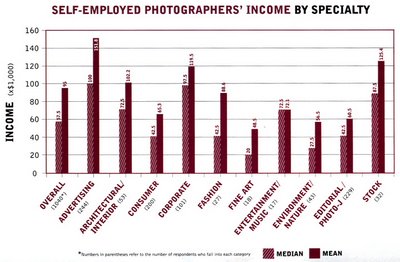 Educate yourself. Sometimes it is difficult to find the motivation to study and to work and to contemplate, but eventually you will come to the place where you develop a passion for something. (I'm hoping it might be photography.) There will come a time, probably toward the end of your college carrier, when you begin to realize you actually enjoy your classes, and it's not about making grades anymore, but rather it becomes more about developing yourself. You have found what you love, what makes you want to work and study and contemplate. Hopefully as an educator I can lead you down the right path, or give you some motivation to get you started, but eventually the training wheels come off and you set out on your own. I'm betting there will be friends and colleagues along the way to share in your journey, but you will set the directions and course of your life.
Educate yourself. Sometimes it is difficult to find the motivation to study and to work and to contemplate, but eventually you will come to the place where you develop a passion for something. (I'm hoping it might be photography.) There will come a time, probably toward the end of your college carrier, when you begin to realize you actually enjoy your classes, and it's not about making grades anymore, but rather it becomes more about developing yourself. You have found what you love, what makes you want to work and study and contemplate. Hopefully as an educator I can lead you down the right path, or give you some motivation to get you started, but eventually the training wheels come off and you set out on your own. I'm betting there will be friends and colleagues along the way to share in your journey, but you will set the directions and course of your life.As that relates to photography, I STRONGLY SUGGEST that you begin to investigate resources that pique your interests and develop your knowledge (about photography). So here's a list of resources that I have found helpful:
1. Books...especially free ones (photo books are found in the TR 600's at the library!!!)
2. Magazines...especailly those that discuss ideas and content (about photography) and not just the technical stuff
3. Shows in local or nearby galleries and museums (of photography)
4. Lectures...the Robert C. May lectures at UK are an incredible opportunity to hear from important artist-photographers (UK, you don't know how lucky you are!)
5. The World Wide Web...there have to be countless sites about photography that are only a click away
6. Friends, colleagues, and mentors...who share the same passions as you (perhaps about photography) and keep you accountable to your own personal work
You can see where I'm going with this. The point is some day you will take the reins and follow your passions. What I'm suggesting is that you prepare yourself by laying out a road map of sorts that will help lead and guide you on your way. Take advantage of the resources you have now so you can make educated decisions and preparations for the life that's ahead of you.



